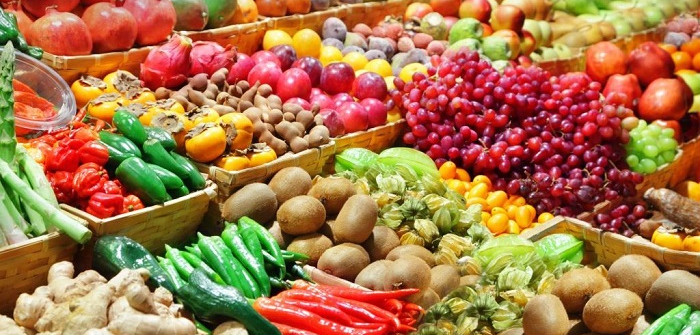Go Back
Jun 09 2015
8 Spring Fruits & Vegetables to Add to Your Grocery List

This time of year is one of the best times for fresh produce. Spring fruits and vegetables are a great choice for anyone who cares about their health, but which ones are the best? Whether you have a favorite farmer’s market or you enjoy the convenience of a grocery store, it can be a challenge to figure out what's in season and what to eat.
These are a few of our spring favorites:
Raspberries - This is one of the popular spring fruits; they’re low in calories and sugar but they’re also a great source of fiber. Most importantly, raspberries are high in antioxidants, which have been shown to help prevent cancer. These berries go great in a fruit salad or in a smoothie.
Kale - This spring vegetable has become quite trendy lately, so you’ll have a much easier time finding them in the grocery store. Kale is high in vitamins K, A, and C, and very low in calories. Furthermore, it’s easy to add to a salad, or you can use the leaves as a wrap instead of tortillas or bread.
Red bell peppers - These spring vegetables are high in antioxidants and Vitamin C. They’re also a great addition to almost any casserole or vegetable dish. Because of their slightly sweet taste, red bell peppers are also a great vegetable to eat as a snack. Other varieties of bell peppers also make terrific choices, but the orange and yellow varieties have fewer antioxidants.
Spinach - For many of us, this vegetable was ruined after we were forced to eat it as a child when it was cooked down into an unappetizing mush. Instead, look for fresh spinach greens that can be added to salads and chicken dishes. Use whole leaves; don’t break them up. Spinach is a great source of iron, folate, and magnesium; three minerals that most women don’t get enough of in their daily diet.
Oranges - These fruits are known for being high in Vitamin C, but they also make a great snack when you’re traveling. They’re easy to throw into a lunch box or cooler, and they won’t get squished or turn brown quickly. That makes them perfect to take along to the beach or even exercise class for a post-workout pick me up.
Chives - Otherwise known as green onion, this vegetable is perfect for those (especially kids) who won’t eat vegetables. They’re one of the most nutrient dense vegetables out there, making them a great choice if you can only eat a small amount. Chives can be cut small and added to just about any meat or side dish. They’re also one of the easiest plants to grow; they thrive in just about any type of soil.
Tomatoes - It doesn’t matter if you believe this is a fruit or a vegetable, it’s still one of the reasons we look forward to spring. Tomatoes are packed with antioxidants, and they’re great with just about anything. Add them to salads, soups, or just eat them as a snack. Ideally, look for organic and heirloom varieties to avoid harmful pesticides. These variations may also pack in a little extra nutrition, too.
Lemons - This is a late spring fruit, but it’s a great choice for anyone who needs to increase their Vitamin C intake. For a refreshing drink with almost no calories, add slices to a pitcher of ice water. Another option is to add lemon juice to bottled water. You'll get the health benefits from the citrus, but you won't add many calories.
The world is coming alive from the winter months, and that means fresh, spring fruits and vegetables are ripe for the picking. Visit your grocer or local farmer’s market this week to take advantage of nature’s bounty!